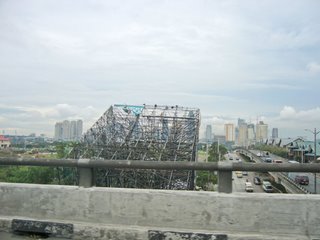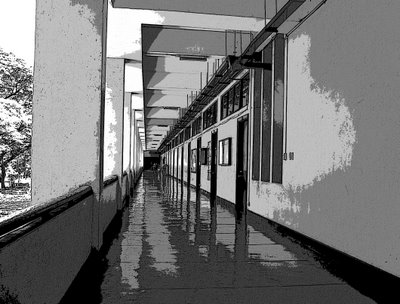Engineering science gave us skyscrapers, suspension bridges, nuclear submarines and supersonic planes. Imagine how much humans have accomplished since the time of the Noah’s
Until concrete and steel became common tools for builders, we had not truly understood how to respond to forces such as gravity, earthquakes, cyclonic winds and water pressure. With a combined steel-and-concrete design, civil engineers have been able to maximize strength and space through economical construction designs and methods. A building can now go up to more than 400 meters using steel or reinforced concrete frames. This beneficial use of material strength applies to many other fields we often take for granted: in dental care, in furniture design, in toy manufacturing and in the design of sporting goods.
Testing the limits of a particular material such as lumber can be as simple as bending it with one’s hands until it breaks or using precise gadgets that will measure how much flexural or bending stress it can withstand before reaching its Ultimate Strength limit. Such know-how allows engineers to design structures that contain all the benefits of economy, aesthetics, strength and durability. In short, engineers determine the allowable limits and work within them. To exceed them is to court disaster.
In sports, testing the limits has allowed athletes to endure stress and overcome great obstacles on the road to breaking Olympic records. Extreme sports – as an exciting new field -- is all about breaking through perceived human limits of endurance, courage and credulity. Certainly, it has become a great source of profit for the networks and of compelling entertainment for people. However, it has also stretched human sensitivity to a point of fatigue itself – a kind of Ultimate Strength limit. In fact, engineers use the term “fatigue” to refer to the failure of a structural member to carry load, thus leading to collapse.
Nervous breakdown is a common occurrence now, perhaps because we subject ourselves to so much stress physically, emotionally as well as mentally. And even kids have been mercilessly utilized by the networks to act like mature newscasters, comedians, entertainers and program hosts as if their presence could give a semblance of innocence and freshness to otherwise unwholesome and hackneyed shows. As if that were not enough, business rears its ugly head and bankrolls shows and activities that all but defy all limits of decency, virtue and common sense. We need to promote a new line of underwear. Bring in the best-looking hunks and babes and let them wear the skimpiest undies. As a finale, let them take them off. Watch how the crowd will howl with glee!
There is really no limit to human depravity. Testing the limits is the oldest but the most enduring game in town.
The
Only up to this point!
In same manner, God had set a limit to humans. As early as the time of Adam and Eve, this became obvious. Everything else was allowed, except for the forbidden fruit. I grant you a million choices but one singular prohibition. I give you one million things but do not choose something else that will destroy you. Sounds fair enough, isn’t it?
But, no! As adventurous or foolhardy as humans are, they end up testing even the limits of God's moral standards. Monogamy was once the originally prescribed limit but polygamy broke through. Marital fidelity used to be the rule until adultery and divorce came into fashion. Laws – whether divine or human – were precisely conceived to set limits to human behavior and yet now there is no end to the promulgation of laws as there is really no end to human ingenuity to impugn the rule of law. Sophisticated security measures and financial controls against embezzlement, fraud, bank robbery and corruption have become standard jobs for monetary institutions. Even the simple task of securing one’s domicile against break-ins has spawned a big business for security agencies and high-tech security-alarm manufacturers.
Complete peace and security has become a wistful dream today, thanks to unlimited or unabated criminality and violence. In a much larger scale, military adventurism has become a fashionable career move for our officers in uniform. Lured by the promises of businesspeople and politicians, some of these officers become easy prey for people who wantonly test the limits of democracy. Add to this deadly, armed component those who stretch the limits of our so-called freedom of speech and assembly and we have the formula for bringing a nation to the brink of collapse. Like a building that has structural members with limited capacities, so with a nation where peace and order can break down under abnormal and intolerable conditions. Hence, the danger of anarchy will always remain as long as there are those who resort to nefarious ways to test the limits of our institutions.
When will it all end? How do we arrest the ultimate downfall of order in society?
Simply by living within the limits of society’s norms. As Aristotle and Confucius said, “Walk the middle path.” Yes, do not go to the extreme left or right. Do not go to the extreme height or the extreme depth. Stay within the liberties given to us by God and society and we will do well. There is so much we can do and enjoy in that space “within the bounds” without feeling bored or confined. Without feeling that life is unjust or unkind.
Only the abnormal or the eccentric feel compelled to cross the lines to unnatural behavior. Were you born a male? Then, behave like one. Who said it’s all genetic? “God made them male and female.” How can He make a mistake? Homosexuality is merely another convenient way to test and break the limits.
But we cannot stop people from testing and breaking the limits. They believe they have unlimited rights and freedoms. We can only expect society to strengthen the institutions that will help people gain control over their inordinate passions before they totally destroy themselves and others. Prisons were designed to do that but, as it is, more people who should be in them are out there wreaking havoc. Government was designed to promote law and order but at times the people in government themselves violate the law and create discontent. Churches were meant to provide us with spiritual guidance but oftentimes the behaviors of pastors and bishops repulse us.
Going back to what is essentially required of each individual must be given emphasis in homes and schools. Wonder why we see societal breakdown? Because we no longer teach “Good Manners and Right Conduct”. If kids today do not know how to throw trash properly, it comes from a simple lack of basic training. Eventually it grows to become a case of disrespect for authority. We, in general, have become too soft in disciplining children. They have learned early on that if they can cross the limits, they soon gain confidence to do things we used to abhor ourselves but dare not forbid them for fear of their rebellion. The neglect escalates until we reap the whirlwind.
Women now drink beer and wine as openly as men. Not that they don’t have the equal right, if that is what you think this criticism is all about. But it’s not that; it’s about men having broken through the limits first a long time ago and then being followed by women now in full force. Baby come lately! Everybody’s doing it now for sure. Good for business and everyone. Let’s drink to that! Everybody’s welcome to the party!
With parents steeped in “extreme” tendencies or “deficient” morals, can the children be far behind? We now reap the fruits of this overweening culture of deviant and inordinate human behavior. Notice how bored kids are nowadays? They used to be so playful and slept when they got tired of running around. But now they never get tired of sitting down and playing PC games. So what? What’s the difference? Playing outside made them strong and normal. Their bodies told them to rest when they needed to. Playing PC games makes them physically weak, socially inept and emotionally dull. They don’t even know the meaning of tiredness or hunger once they sit to play. (Their parents have to tell them so!) They no longer interact with people or with themselves but with a machine. They no longer see the world but a fictitious realm. They have broken through the mist of unlimited imagination and away from the real world. Caveat: The mind never gets tired; it only goes insane.
But don’t take my word for it. Look closely at your own children, nephews and nieces. Or better still, find out for yourself what they are going through. Only then will you find out for yourself what kinds of adults they will become.
Do they – or we, for that matter -- live within the limits or are they/we constantly testing the limits? The answers are there right before our eyes.


















